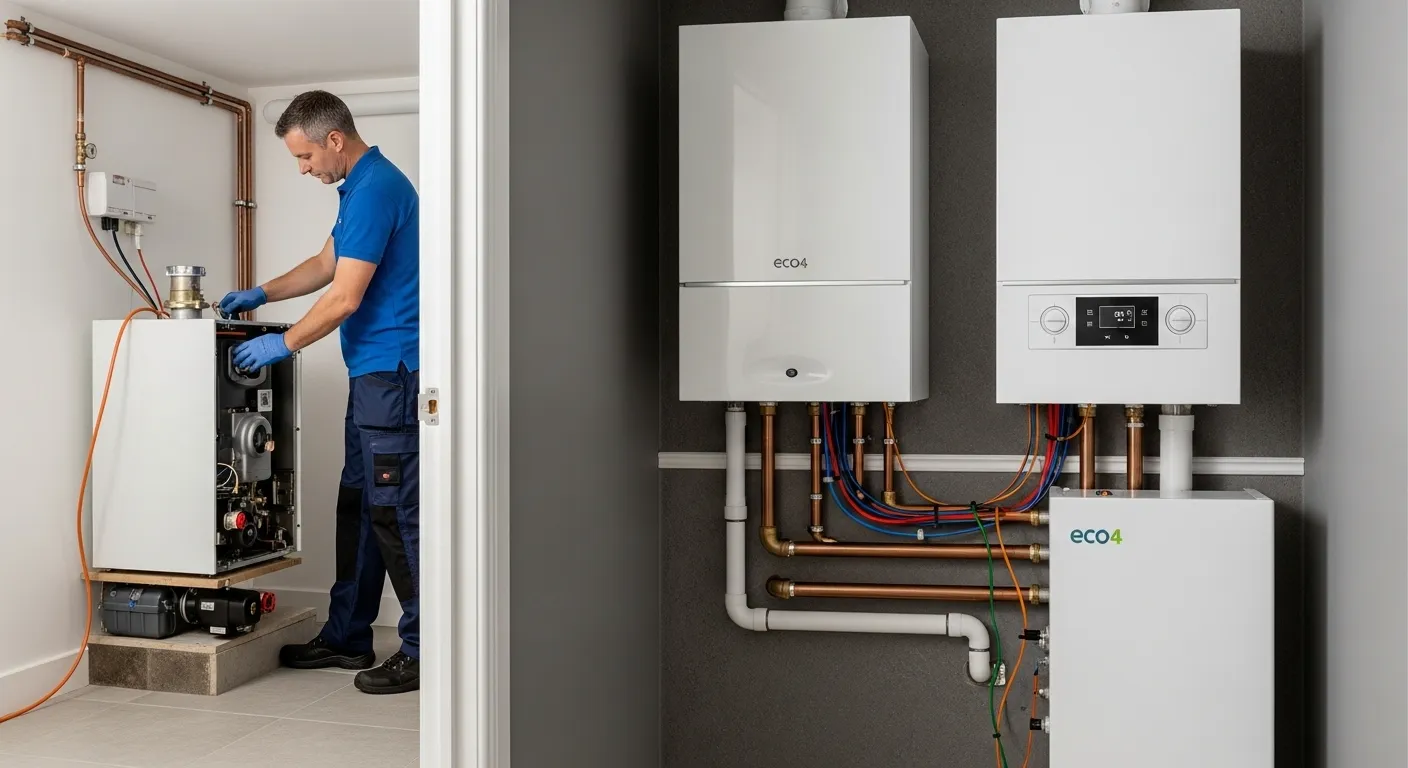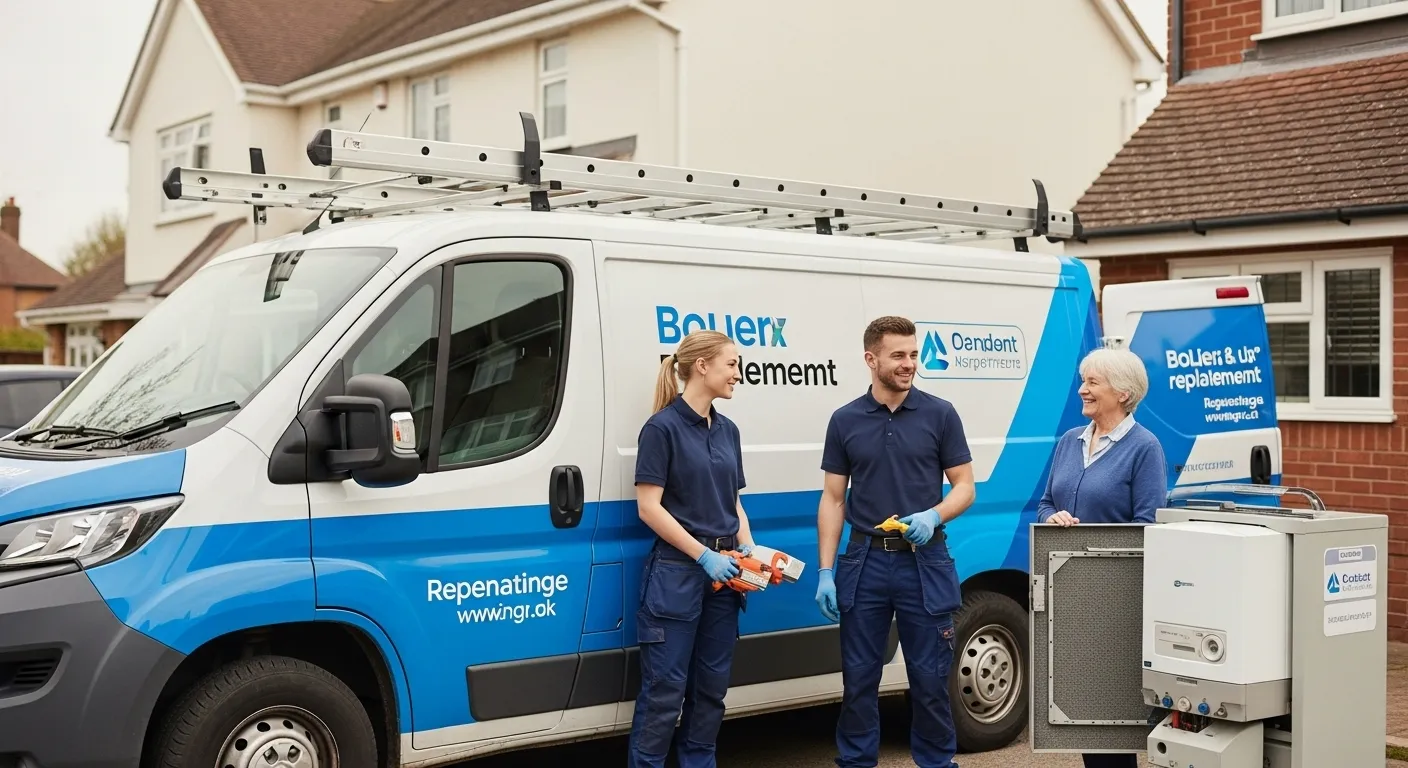Real Cost of cavity wall insulation grant - Complete Breakdown
If you are a UK homeowner considering energy-efficient upgrades, such as cavity wall insulation or free boiler replacements, understanding the costs and benefits of these improvements is crucial. This guide will provide a comprehensive breakdown of the costs associated with cavity wall insulation, the savings you can expect, and how to take advantage of government grants like the Great British Insulation Scheme (GBIS) and the Energy Company Obligation (ECO4).

Real Cost of Cavity Wall Insulation Grant - Complete Breakdown
If you are a UK homeowner considering energy-efficient upgrades, such as cavity wall insulation or free boiler replacements, understanding the costs and benefits of these improvements is crucial. This guide will provide a comprehensive breakdown of the costs associated with cavity wall insulation, the savings you can expect, and how to take advantage of government grants like the Great British Insulation Scheme (GBIS) and the Energy Company Obligation (ECO4).
What is Cavity Wall Insulation?
Cavity wall insulation is a process that involves filling the gap between the inner and outer walls of your home with insulating material. This can significantly reduce heat loss, lower your energy bills, and cut your carbon footprint.
Cost of Cavity Wall Insulation in 2025
The cost of cavity wall insulation can vary widely depending on several factors, including the size and type of your property, the material used, and the complexity of the installation.
💡 Key Takeaway
UK homeowners can expect to pay between £950 to £4,600 for cavity wall insulation in 2025[4][5).
| Property Type | Typical Installation Costs (£) | Energy Bill Savings (£/year) | CO2 Savings (kgCO2/year) |
|---|---|---|---|
| Flat/Apartment | £1,000 | £110 | 305 |
| Mid-terrace house | £1,500 | £140 | 385 |
| Semi-detached house | £2,700 | £235 | 650 |
| Detached bungalow | £2,100 | £175 | 485 |
| Detached house | £4,600 | £405 | 1,100 |
Material Costs
The material cost for cavity wall insulation can range from £13 to £30 per square meter, depending on the type of insulation material chosen. However, this cost does not include labour and installation fees[1][4).
Savings and Benefits
Insulating your cavity walls can bring significant financial and environmental benefits:
Benefits Include:
- Cost Savings: You can save up to £405 per year on energy bills for a detached house[5).
- Energy Efficiency: Cavity wall insulation can reduce your home's heat loss by up to 33%[1][2).
- Environmental Impact: This can cut your carbon footprint by up to 1.1 tonnes per year for a detached house[1][2).
- Government Support: Eligible homeowners can receive grants through the GBIS and ECO4 schemes to cover or reduce the costs of installation[2][3).
Government Grants for Cavity Wall Insulation
The UK government offers several grant schemes to help homeowners with the cost of cavity wall insulation:
The Great British Insulation Scheme (GBIS)
The GBIS is a £1 billion scheme aimed at helping the least energy-efficient households across the country. This scheme provides funding for various home insulation measures, including cavity wall insulation, until March 2026[3).
The Energy Company Obligation (ECO4)
The ECO4 scheme is another key initiative that obliges energy companies to provide funding for energy-efficient home improvements. This scheme also includes cavity wall insulation and runs until March 2026[2][5).
🔧 Expert Tip
It is advisable to apply for these grants as early as possible to increase your chances of qualifying, as funding is limited and the schemes are set to end in March 2026[2][5).
Eligibility Criteria for Grants
To be eligible for free or reduced-cost cavity wall insulation through the GBIS or ECO4 schemes, you must meet specific criteria:
- Income-Based Criteria: You may qualify if you receive certain benefits or have a low income[5).
- Property Type: The scheme typically targets properties that are poorly insulated and have high energy bills[2]).
- Existing Insulation: Properties without existing cavity wall insulation are more likely to qualify[4]).
💡 Key Takeaway
If you do not meet the standard eligibility criteria, you might still be able to get some grant coverage through the ECO Flex program administered by the ECO4 scheme[2]).
Step-by-Step Process to Apply for Grants
Here is a step-by-step guide to help you apply for cavity wall insulation grants:
- Check Eligibility: Determine if you meet the eligibility criteria for the GBIS or ECO4 schemes. You can use online tools or consult with a local authority to check your eligibility[5]).
- Gather Documents: Prepare the necessary documents, such as proof of income, benefit letters, and details about your property[2]).
- Apply Online: Submit your application through the official government websites or through approved installers who can guide you through the process[5]).
- Get an Assessment: A qualified assessor will visit your home to determine the suitability for cavity wall insulation and to provide a quote[4]).
- Install the Insulation: Once your application is approved, a certified installer will carry out the installation. Ensure that the installer is approved under the relevant scheme to qualify for the grant[2]).
🔧 Expert Tip
Always use certified and approved installers to ensure that the work meets the standards required by the grant schemes and to avoid any potential issues with your application[2]).
Conclusion
Investing in cavity wall insulation is a wise decision for UK homeowners, offering significant energy bill savings, improved energy efficiency, and a reduced carbon footprint. With the help of government grants like the GBIS and ECO4, this investment can be more affordable than ever.
Key Points to Remember:
- Cost Range: £950 to £4,600 depending on property type and size[4]).
- Savings: Up to £405 per year on energy bills and 1.1 tonnes of CO2 reduction for detached houses[1][5]).
- Government Schemes: GBIS and ECO4 provide grants until March 2026[2][3]).
- Eligibility: Income-based criteria, property type, and existing insulation[5]).
Frequently Asked Questions (FAQs)
What is the average cost of cavity wall insulation in the UK?
The average cost ranges from £950 to £4,600, depending on the property type and size[4]).
How much can I save on energy bills with cavity wall insulation?
You can save up to £405 per year on energy bills for a detached house[5]).
What government grants are available for cavity wall insulation?
The Great British Insulation Scheme (GBIS) and the Energy Company Obligation (ECO4) are the two main grant schemes available until March 2026[2][3]).
How do I apply for a cavity wall insulation grant?
Check your eligibility, gather necessary documents, apply online or through approved installers, and get an assessment before the installation[5]).

